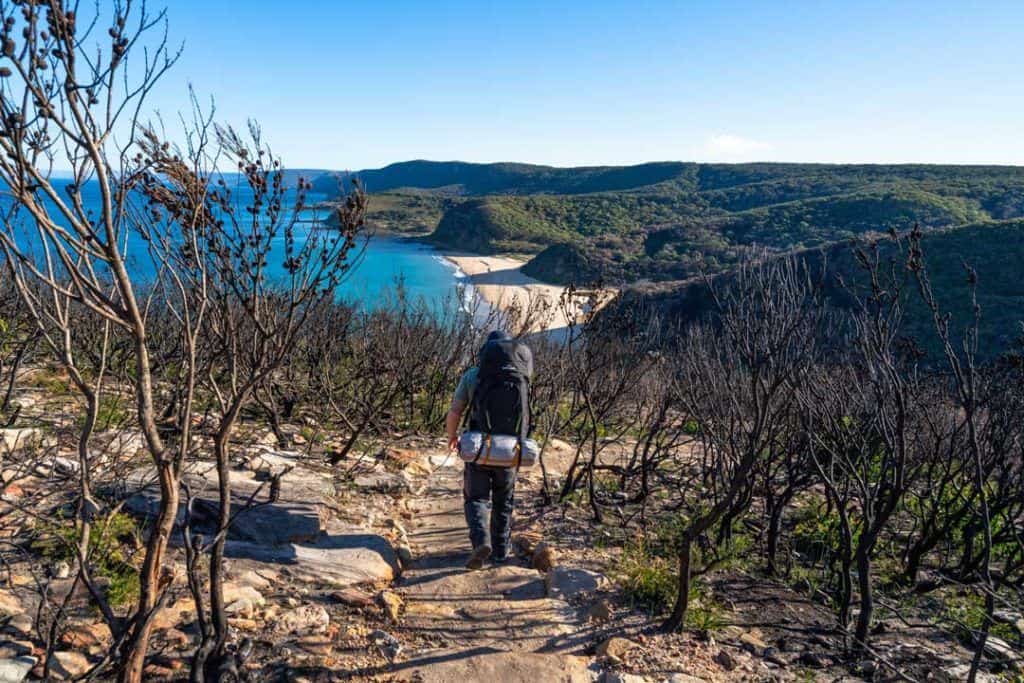Here’s our list of the best travel tips to help you travel like a pro.
We’ve been lucky enough to be travelling the world for over a decade, living a semi-nomadic life, and in that time we’ve picked up quite a lot of travel tips along the way.
Rather than write out a list of generic travel advice or life lessons, we wanted to put together this article with a bunch of actionable and not-so-obvious tips to help you make the most of your adventures.
Here are Our Top Travel Tips
Whether you’re planning on travelling for a week or a year, we hope these great travel tips will make your next trip go much more smoothly.
1) Travel Slow
Whenever somebody asks what our number one travel tip is, we always reply with the same bit of advice – slow down.
It’s totally normal to try and fit in as many exciting destinations and incredible activities as possible when you’re on vacation. After all, your time away from work is precious. But we can promise you that you’ll gain so much more valuable experiences and memories if you travel slowly.
The truth is that unless you’re staying at an all-inclusive resort and have no intentions of leaving the property, travel is exhausting. Your sensors are firing on all cylinders, constantly taking in the new sights, smells and tastes of wherever you are.
If you’re anything like us too, the moment you leave the hotel you’re out on your feet all day, visiting museums, climbing viewpoints and winding your way through narrow alleyways. Yes, you’re on holiday, but you’re not exactly taking a rest!
Throw in that if you’re on a long-term trip as well, you need to be constantly thinking about how to get to the next place, where you’re going to stay, how to get a visa on the road, managing finances, etc.
READ MORE – Check out our guide on how to be a responsible traveller.
The best way to not get completely burnt out from all of this is to simply slow down.
Give yourself more time in each city you go to. Spend the mornings sightseeing, but leave the afternoons free to chill out in a cafe. Don’t try and jam pack a million things to do into a few hours.
Staying in places longer also gives you a chance to find hidden gems, try different restaurants and sometimes even get better deals on your accommodation.
We’ve done it all – tried to fit in everything into one week, spent 7 months wandering one country, and everything in between. We can promise you that slow travel is much more rewarding, and better for the soul.
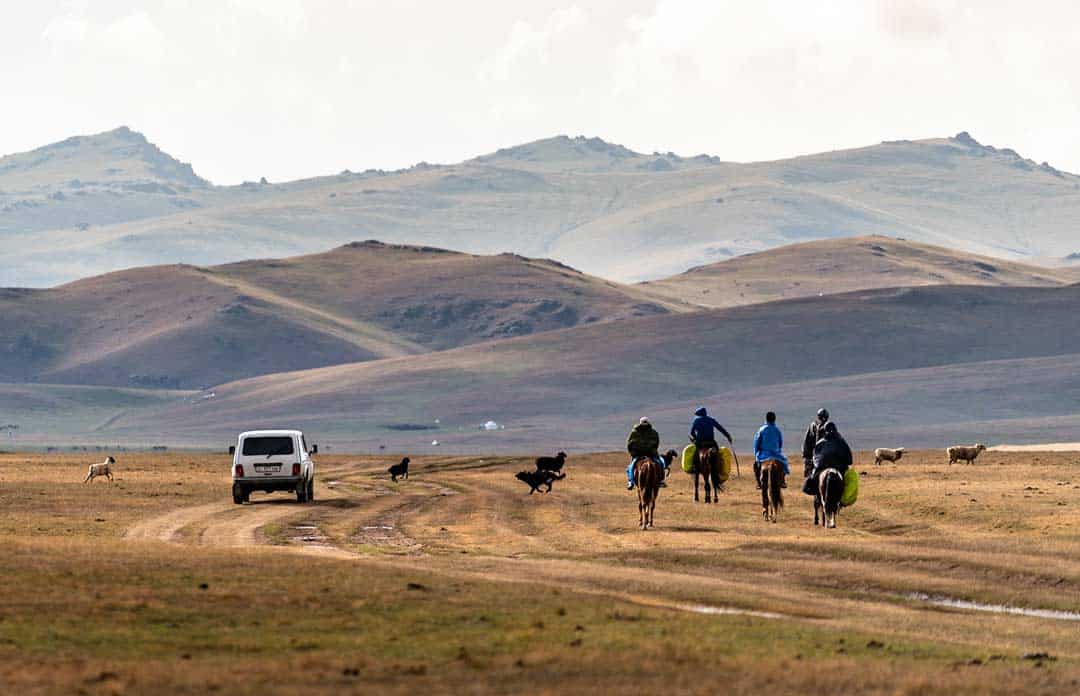
2) Think Outside the Box When Booking Flights
Depending on where you are going, flights can be the most expensive part of your trip. If you’re planning on going somewhere slightly obscure, the prices might even be astronomical.
That’s why we always try to think outside of the box when it comes to searching for our airfares.
The first thing to do is try a whole bunch of different websites to find the cheapest options. You can save money on flights with Wego as an example, or do simple online searches.
For example rather than just punching ‘Sydney to London’, try going ‘Sydney to Singapore/Kuala Lumpur/Bangkok’ or any other major hub, then from there to London to see if there’s specials on airlines that aren’t part of the same alliance.
Or if you want to have a layover somewhere, look at multi-trip tickets. That’s how we ended up giving ourselves 3 days in New York City for the same price as transiting through.
3) Learn Some of the Local Language
Have you ever had somebody walk up to in your home town and ask a question in a language you don’t know? If you live somewhere like Australia or the United States, the chances are not likely, or if it has happened, very rarely.
It’s just not something that would happen, and in some places it’d even be considered completely unacceptable.
Now let’s flip the coin – have you ever travelled to a place where you don’t know a single word in the local language? Where you just walked up to a local and blurted out a query or question in English, expecting or hoping them to understand?
I’m going to go out on a limb and say yes. We’ve all done it.
There seems to be a double standard when it comes to speaking local languages, depending on whether you are on vacation, or you are at home. The fact of the matter is though it’s almost impossible to learn an entire language for a place you only plan on visiting for a couple of weeks.
That doesn’t mean you shouldn’t at least try though.
Our next best travel tip is to make an effort to learn the basics of the local language for where you are visiting. Try to pick up words and phrases such as ‘hello’, ‘thank you’, ‘good bye’, ‘where is the bathroom?’ and ‘how much?’ so when you communicate with a local, you are making an effort to do so in their language.
Showing this level of respect will go a long way in making positive interactions between tourists and local communities. If you don’t have time to learn from various apps before you leave home, on your first day in a new country ask a local to write down those keywords into a notebook, and keep that on you at all times.
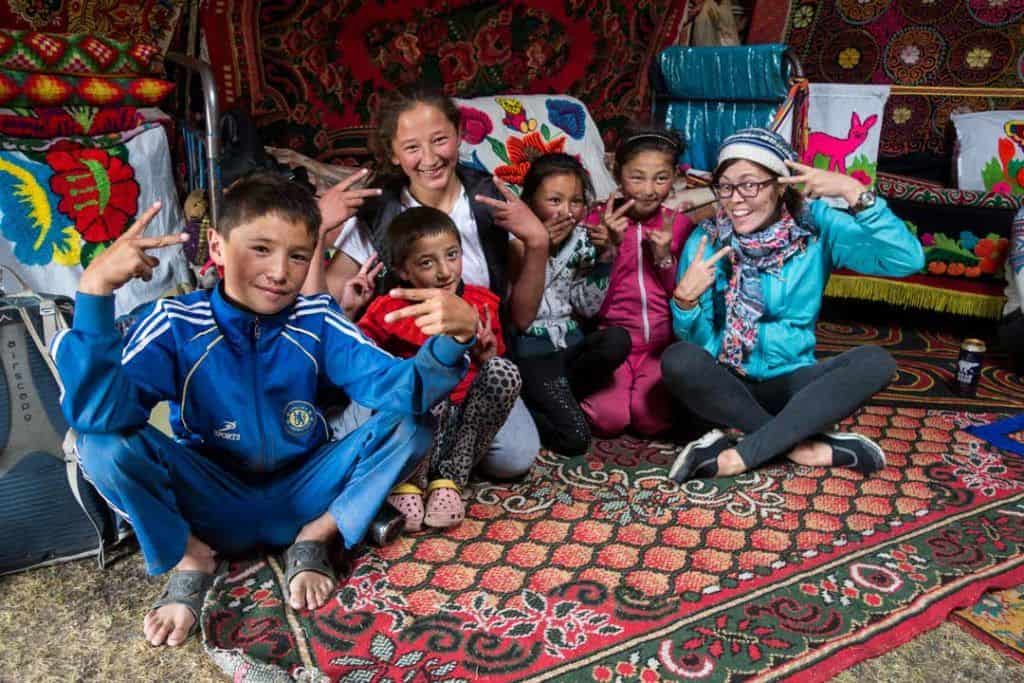
4) Buy Travel Insurance
If you can’t afford travel insurance, you can’t afford to travel. It’s a saying that has been used thousands of times, and that’s because it’s entirely true.
A lot of the people we know who have refused to buy travel insurance do so because they feel it’s a waste of money, or they don’t travel with anything valuable, or believe that medical care wherever they are going is cheap.
We can tell you from experience that none of that matters. Alesha visited a hospital in Thailand with severe stomach pains one day, and after only spending a few hours there we were handed a bill for USD$1000.
Our old roommate broke his leg rock climbing in Canada and ended up getting a blood infection in the hospital. He spent 6 weeks confined to a bed getting treatment, and his bill came to $150’000.
Even if you don’t think you’ll get sick or aren’t planning on doing any extreme activities, accidents do happen.
READ MORE – Do you really need travel insurance?
5) Ask for Prices Before you Agree to Anything
Never, and we mean never, get into a cab, sign up for a tour, order a meal at a local restaurant or agree to anything that involves money without knowing exactly how much it will cost you.
Unfortunately in quite a few countries, unscrupulous locals may see tourists as a walking money bag (especially taxi drivers, don’t get us started on taxi drivers), and if you haven’t determined how much something is worth beforehand, they may feel they can make up a higher price at the end.
At this point you’ve already received your product or service, and can find it hard to argue a lower price, even if you know they are trying to rip you off.
So our big travel tip is to always negotiate and agree on a price beforehand, and make sure you iron out all of the finer details first (one-way or both ways, per person or total, etc).

6) Get a VPN
If you’re like us and are constantly connecting to random wifi networks around the world, you need to learn to protect your sensitive data when browsing the web.
Hackers are getting smarter and more cunning, and might be monitoring web traffic on an unprotected network, and if you happen to punch in your bank login or credit card details on a compromised network, you could be at risk of having your accounts cleared out.
For this reason whenever we are doing anything involving money, we use a VPN to create a secure connection.
Some countries as well block access to various social media platforms and websites, and you can get around these restrictions by using a VPN.
Beyond that, this is also very handy if you are trying to use a website that is geo-restricted, or perhaps has different prices for people buying products outside of their home country.
(For example we’ve seen websites try to charge us up to 25% more for something because we’re trying to buy it in Australia. Change location to the US, and get the same thing for cheaper!)
We personally use ExpressVPN and have done so without issue since 2014. Use this link to get your first 30 days for free.
7) Apply for a Credit/Debit Card That Has Zero International Transaction Fees
Did you know that many banks will charge you a fee for making purchases in a foreign currency, or using an international ATM?
This is usually 3% for a currency conversion, plus $5 (more or less) for using your card overseas. It might not seem like a lot, but if you’re on a long trip, or making regular purchases in different currencies, this is going to add up.
For this reason we always carry a bunch of different debit and credit cards that offer zero international transaction fees to keep our needless expenses down. Because at the end of the day, who really wants to give banks more money?
You’ll need to do your own research to see which banks offer these products in your own personal country, but here in Australia we’ve found a couple of great ones:
Bankwest have a Platinum MasterCard with zero annual fee and zero overseas transaction fees.
CitiBank has a debit card that doesn’t charge you anything to withdraw money at an overseas ATM (you still pay the local ATM fee though).
ANZ also have a ‘Travel Rewards’ Visa credit card that doesn’t charge any fees for overseas credit transactions, plus it lets you collect frequent flyer miles.
Note – we are not sponsored by or affiliated with any of the above banks in any way.

8) Never Exchange Money in Your Home Country
Speaking of money, one common question we get from readers, friends and family is what to do about having access to cash when they travel. We always tell them over and over again, just get your money there in the country.
Gone are the days of needing traveller’s cheques or having to exchange your money in your home country before you start the vacation.
In fact these methods will actually end up costing you money!
Airports and banks offer horrible exchange rates on international money, and you’ll up losing a lot of money in currency conversions if you give them your business.
Instead we recommend waiting until you are in the country and withdrawing money at an ATM. Remember how you picked up that awesome debit card without international transaction fees? Yep, it’s going to work wonders here.
Even if you don’t have one of those awesome cards, getting money out an ATM will almost always be better value than exchanging money at the bank or airport.
For those that always want local money as well for when they land, most airports have ATMs in the terminal, and while they might have higher ATM fees, you’ll usually get the current market rate for currency conversions.
9) Have Multiple Copies of Your Important Documents
You’ll be surprised how many places ask for a photocopy of your passport, or in some places like Iran perhaps even to see you wedding certificate if you’re sharing a room with your significant other.
Rather than always having these important documents on you at all times, we recommend having a number of photocopies that you stick into your backpack and can show if ever asked (without presenting the real versions).
It’s also a good idea to take photos of these and save them everywhere – email them to yourself, upload them to Google Drive or Dropbox, and keep them in an easy-to-find folder on your phone.
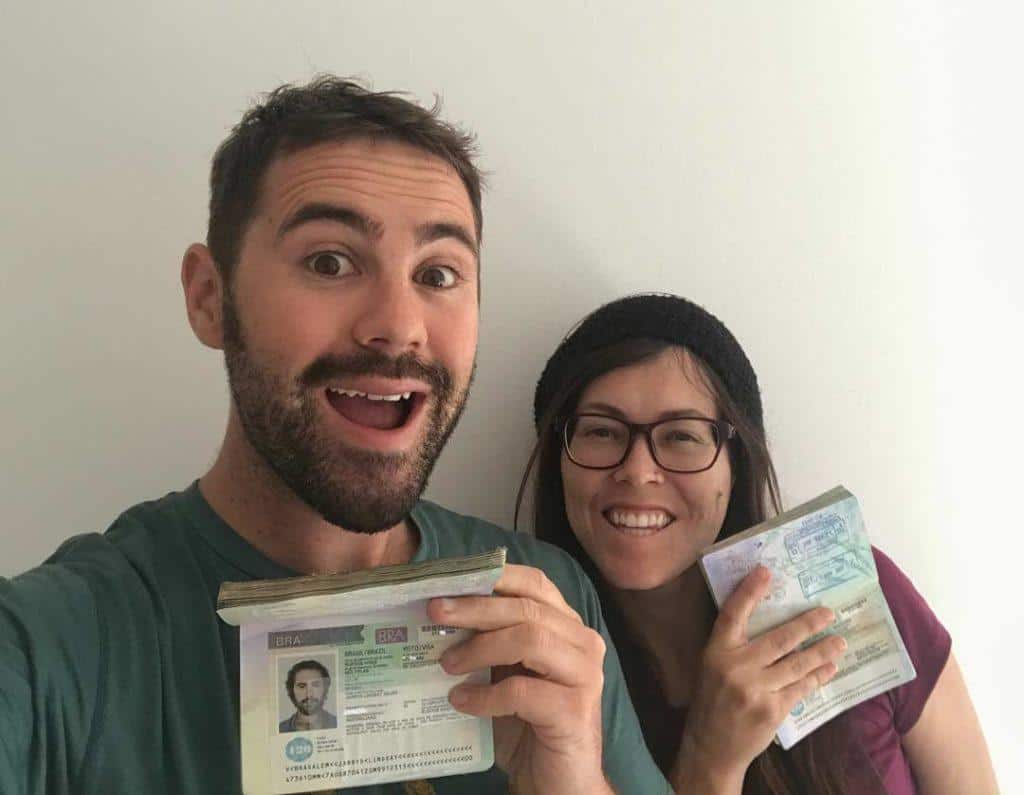
10) ABC – Always Be Charging
This one is particularly important for people like us, who always have laptops, cameras and phones in constant use. Keep them charged!
There’s nothing more frustrating than being out for a full day of exploration, and finding out that your phone/camera is flat.
You never know when you’re going to get a chance to charge your electronics, so if you find yourself somewhere with a spare powerpoint and a bit of time to kill, throw everything you can on charge.
Another great accessory to pick up is a USB battery pack, so you can charge your smaller items throughout the day without needing to find an electrical outlet.
11) Save Money (and Time) – Do Your Own Laundry
You definitely don’t want to be ‘that smelly backpacker’ when you travel, so make sure you bathe regularly, and always have clean clothes.
The thing about travel though is you rarely have time to look for a laundromat and wash your clothes, and getting your hotel to do it for you can be very expensive (it’s 2019, why do they still charge per piece??), so we recommend doing your own laundry.
For years we’ve always hand-washed our clothes (in sinks or in the shower), then hung them up using a pegless clothesline in our room
There’s a couple of reasons we do this. First of all it saves money. While some hostels and hotels charge a reasonable price of only a few dollars for laundry, or have washing machines guests can use themselves, a lot charge insane prices.
Another reason is it also guarantees we won’t lose any bits of clothing. We’ve lost count of the number of times we’ve picked up laundry only to find socks, underwear and even t-shirts missing.
Third, time. We can wash our clothes at night, hang them up, go to bed and in the morning they’ll be dry.
Recently we’ve just picked up a Scrubba ‘travel washing machine’ to make the task of doing laundry easier. So far we’re loving it.
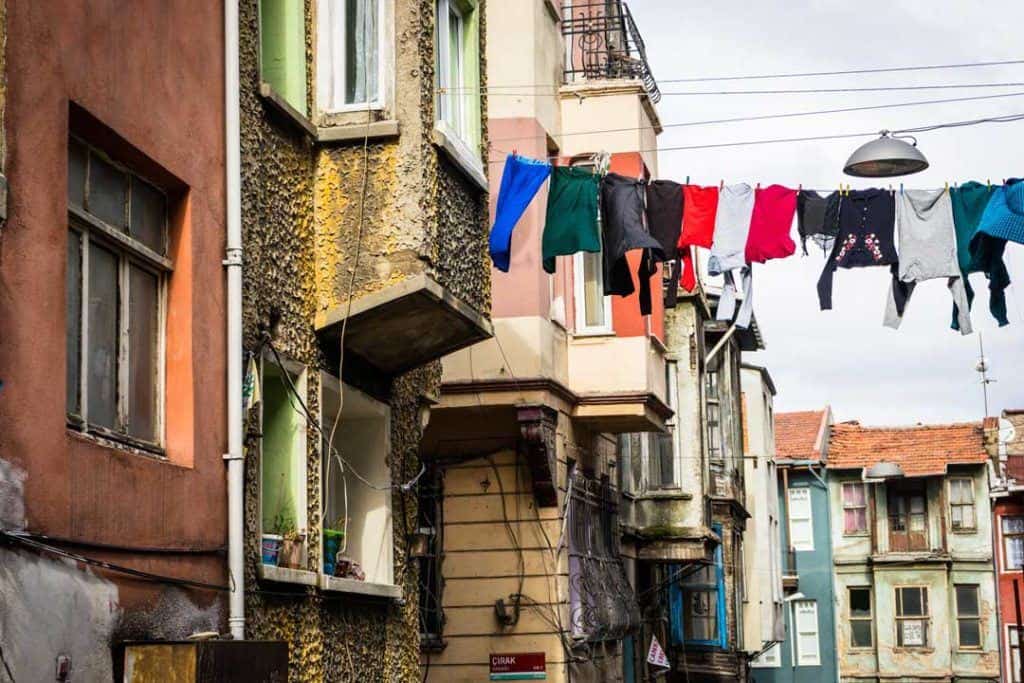
12) Get Quick-Dry Clothes
This travel tip follows on from the laundry one above. Always travel with quick-dry clothing. The reasoning is pretty self explanatory.
Quick-dry clothing is just what it sounds like – made of material that dries quickly. This is awesome if you’re doing your laundry in a hurry or do a lot of outdoor activities where you might sweat (or end in a rain shower).
Just hang it up for an hour or two with a bit of sun or a breeze, and it’ll be fully dry. Or you can do what we do and put on a damp shirt and let your body heat dry it out for you.
Our all-time favourite brand for quick-dry clothing is Kathmandu.
13) Pack Ear Plugs
Even if you’re the world’s heaviest sleeper, having ear plugs in your bag can be the single best (and cheapest) item you travel with.
From loud music on overnight buses to heavy snorers in the tent next to you, you’ll never know when you’ll find yourself trying to catch some z’s in place that is just too noisy to crash out.
You don’t need to have anything fancy. Just the standard foam ear plugs you get from a hardware will do.

14) Always Bring a Water Bottle
If you care about the environment at all, then you should travel with a reusable aluminium water bottle.
Rather than always buying plastic bottles for drinking water as you walk around a town, carry a metal bottle with you and fill it up on the go.
You can drink the tap water in most of Europe, North America, Australia and New Zealand, and also in some parts of South America, Asia and Africa (just ask the locals first).
If you happen to be travelling in one of the very lucky countries that have drinkable water coming straight from the tap, there’s no excuse to buy bottled water.
If you do happen to be somewhere that you can’t drink the tap water, then we recommend buying the biggest water bottle you can find (5L, 10L, etc) and refilling your metal one before going out for the day. This way you’ll minimise your plastic use.
Some places like Thailand have reverse osmosis machines on every block, or most bars and hotels will have water dispensers and will happily fill up your water bottle for a small fee.
15) Get a Local SIM Card for Your Phone
In this day and age, having access to the internet while you travel is almost essential. From booking last-minute accommodation to checking Google Maps, to posting your best travel photos to social media, there’s a million reasons to want to have phone data at all times.
Unless your mobile phone plan has free international data roaming, chances are the moment you turn your phone on in a new country you’re going to start getting hit with crazy fees.
Even if your mobile phone provider offers a deal such as $5-10 a day for international roaming, this is going to add up quickly if you’re on a long trip.
What we personally do is pick up a prepaid SIM card with data in every country that we’re going to be in for a week or more. You might be surprised at how cheap this can be!
For example in Kyrgyzstan we got a 30-day prepaid sim card with 50gb of 4G data for $7. In Romania 10gb was about $10. In fact most countries except for Canada offer really good prepaid deals.
If you have the time we recommend going into a phone shop directly to get the best deals, rather than buying the airport SIM deals, as they’ll almost always be cheaper.
Your phone has to be unlocked for this to work. Do a little bit of Googling before buying a SIM card to make sure you find the best deal as well.
